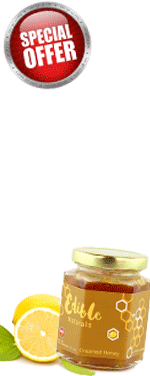|
Sea cucumbers are echinoderms from the class Holothuroidea. They are marine animals with a leathery skin and an elongated body containing a single, branched gonad. Sea cucumbers are found on the sea floor worldwide. There are a number of holothurian species and genera, many of which are targeted for human consumption. The harvested product is variously referred to as trepang, bęche-de-mer or balate.
Like all echinoderms, sea cucumbers have an endoskeleton just below the skin, calcified structures that are usually reduced to isolated microscopic ossicles (or sclerietes) joined by connective tissue. In some species these can sometimes be enlarged to flattened plates, forming an armour. In pelagic species such as Pelagothuria natatrix (Order Elasipodida, family Pelagothuriidae), the skeleton and a calcareous ring are absent.
To prepare the sea cucumber after it is collected, the internal organs are removed, and dirt and sand are washed out of the cavity. It is then boiled in salty water and dried in the air to preserve it. When readied for use in making food, the hard, dried sea cucumber is softened. The process is quite lengthy, which is why this food tends to appear at special dinners and banquets more so than in day-to-day cuisine. To soften the dried sea cucumbers, the instructions are: place the sea cucumbers in a pot and add cold water to cover; soak for at least 12 hours; then cook over low heat for 1 to 2 hours; add more water, as necessary, to make sure that the water always covers the cucumbers; remove from heat and let cool to room temperature, then drain.
According to analysis by principles of traditional Chinese medicine, the sea cucumber nourishes the blood and vital essence (jing), tonifies kidney qi (treats disorders of the kidney system, including reproductive organs), and moistens dryness (especially of the intestines). It has a salty quality and warming nature. Common medicinal uses of sea cucumber in China include treating: weakness, impotence, debility of the aged, constipation due to intestinal dryness, and frequent urination. The sea cucumber properties may be compared with certain other common Chinese tonics that are used in food therapy, such as cordyceps (dongchong xiacao; which tonifies yang and is less moistening) and tremella (yiner; which nourishes yin and is moistening, but is less effective as a blood tonic). For yin and blood deficiency, especially manifesting as intestinal dryness, sea cucumber is combined with tremella to make a soup. For impotence, frequent urination, and other signs of kidney deficiency, sea cucumber is cooked with mutton. For nourishing essence and blood in persons who suffer from emaciation, it is combined in soup with pork.
From the nutritional viewpoint, sea cucumber is an ideal tonic food. It is higher in protein (at 55%) than most any other food except egg whites (at 99%) and it has 10-16% mucopolysaccharides, substances that are used to build the cartilage. Sea cucumber is lower in fat than most other foods.
From the modern medical viewpoint, sea cucumber is a valuable source of several kinds of substances that can serve as natural health products, and, perhaps, be developed as drugs. Since sea cucumber is consumed as a food by a very small segment of the population outside East Asia, most people do not have access to its beneficial components. Thus, extracts of desired sea cucumber materials are put into easy-to-consume formats, such as capsules (hard and soft gelatin) and tablets.
Sea cucumber, having a cartilagenous body, serves as a rich source of mucopolysaccharides, mainly chondroitin sulfate, which is well-known for its ability to reduce arthritis pain, especially that of osteoarthritis As little as 3 grams per day of the dried sea cucumber has been helpful in significantly reducing arthralgia. Chondroitin's action is similar to that of glucosamine sulfate, the main building block of chondroitin.
|











